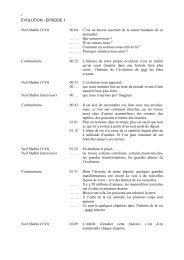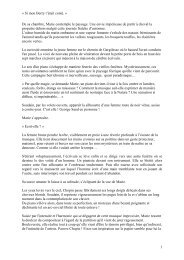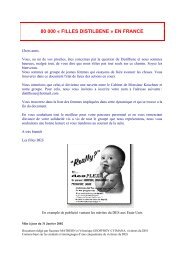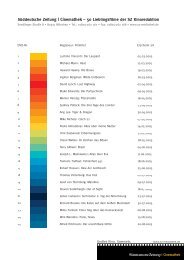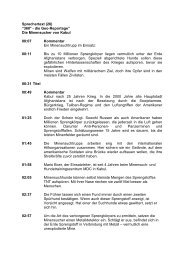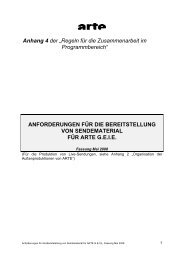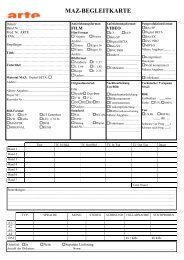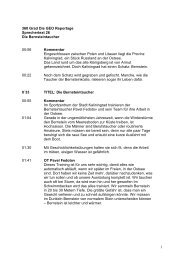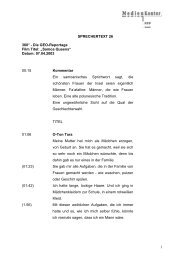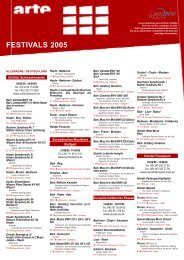POPs IN AFRICA HAZARDOUS WASTE TRADE 1980 - 2000 ... - Arte
POPs IN AFRICA HAZARDOUS WASTE TRADE 1980 - 2000 ... - Arte
POPs IN AFRICA HAZARDOUS WASTE TRADE 1980 - 2000 ... - Arte
Create successful ePaper yourself
Turn your PDF publications into a flip-book with our unique Google optimized e-Paper software.
These are known as unwanted, obsolete pesticide stockpiles,<br />
some of which are already banned in many States of the world.<br />
They pose a serious threat to human health and the environment<br />
due to their persistency and hazardous properties that damage<br />
water supplies, land use, human health, animals and plants.<br />
The Food and Agriculture Organization (FAO) of the United<br />
Nations has compiled an inventory of obsolete stockpiles for 45<br />
countries in Africa and the Near East and a few countries in the<br />
Far East, Latin and Central America and the Caribbean. In most<br />
cases, the inventory includes producers, suppliers and responsible<br />
donor organizations. The total stockpiles estimated to exist in<br />
Africa including heavily contaminated soils and empty and<br />
contaminated pesticide containers is nearly 50,000 tonnes and is<br />
likely to increase above this total. 2<br />
These obsolete chemicals are either stockpiled in sub-standard<br />
storage facilities, or kept in the open or under trees with little or<br />
no safeguarding. They have been left to endanger or contaminate<br />
soils, ground and drinking water and agricultural irrigation<br />
systems. Some are strewn across the environmental landscape of<br />
receiving countries and some have been introduced through<br />
illegal markets or cross-border smuggling.<br />
Some originated from supplies under different aid packages of<br />
assistance over a number of years. Unfortunately new stockpiles<br />
of hazardous and poisonous chemicals continue to accumulate.<br />
Basically these substances are produced and exported by the 8<br />
most powerful multinational chemical companies, namely,<br />
Aventis, BASF, Bayer, Dow AgroSciences, Dupont, Monsanto,<br />
Sumitoma and Syngenta collectively dominating over 80% of the<br />
world's market. Some of these companies have either merged,<br />
changed names or have expanded their business into larger<br />
conglomerates. Pesticide sales earn companies over US$ 30<br />
billion per year.<br />
The seats of these companies are in rich industrialised countries,<br />
all members of the thirty-country global Organisation for<br />
Economic Co-operation and Development (OECD).<br />
Obsolete pesticide stockpiles are a serious international<br />
environmental problem that has attracted little public attention as<br />
yet. Nonetheless, vigorous efforts are underway to assist affected<br />
countries by the responsible United Nations bodies, particularly<br />
FAO and UNEP. There is also a heated debate among<br />
responsible producers and suppliers and governmental aid<br />
organizations such as the German GTZ or USAID.<br />
2 Preliminary list of countries with known obsolete pesticide stocks – Countries in Africa, www.fao.org<br />
News Highlights (=FAO 2001)<br />
10



